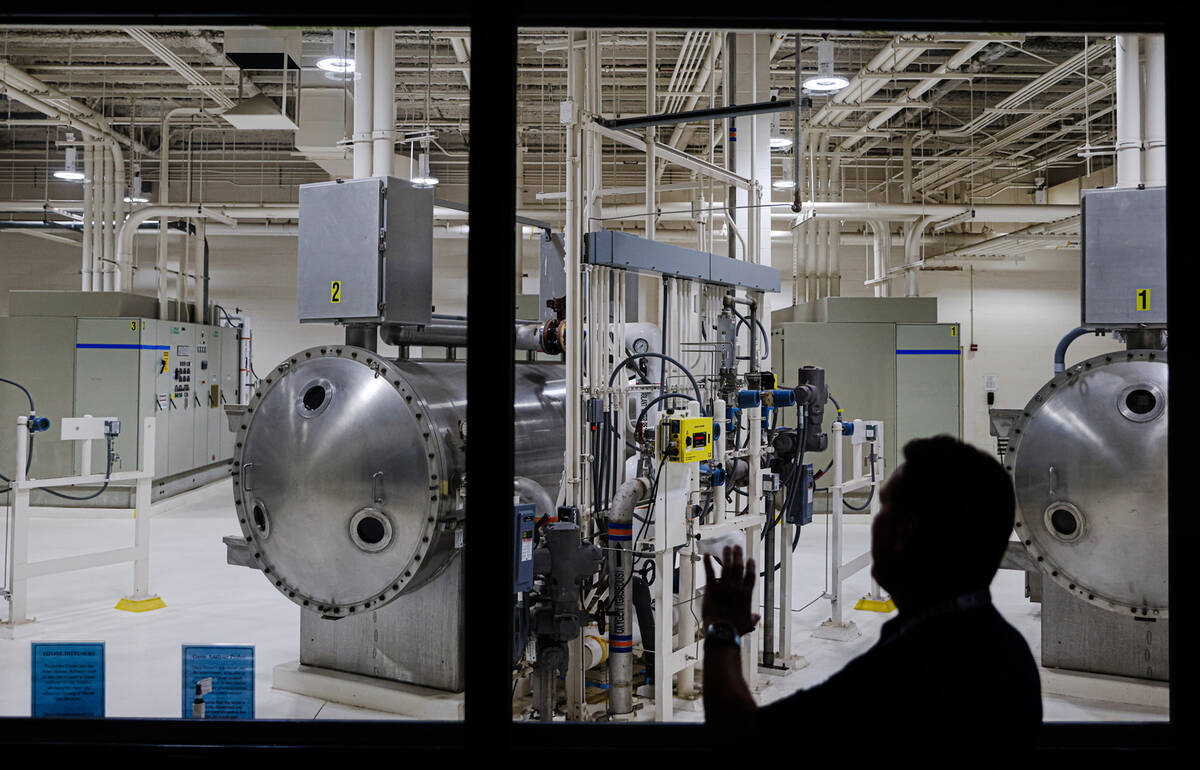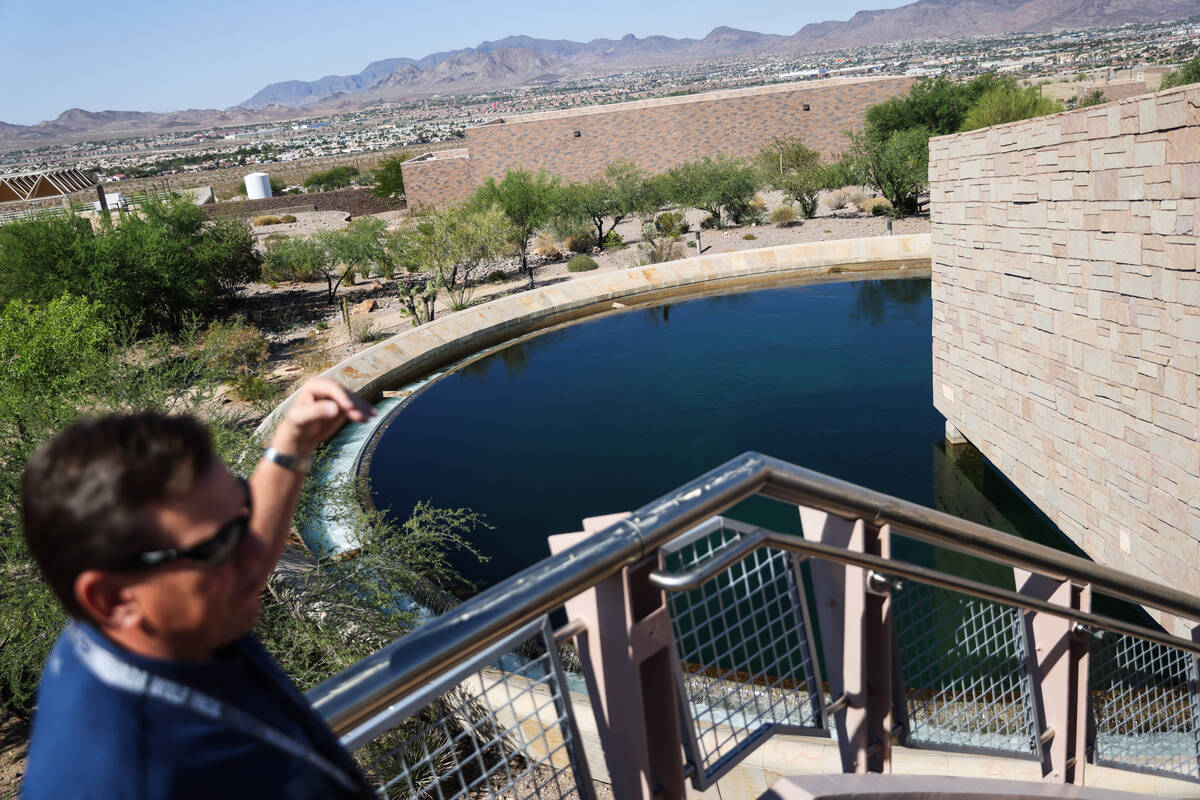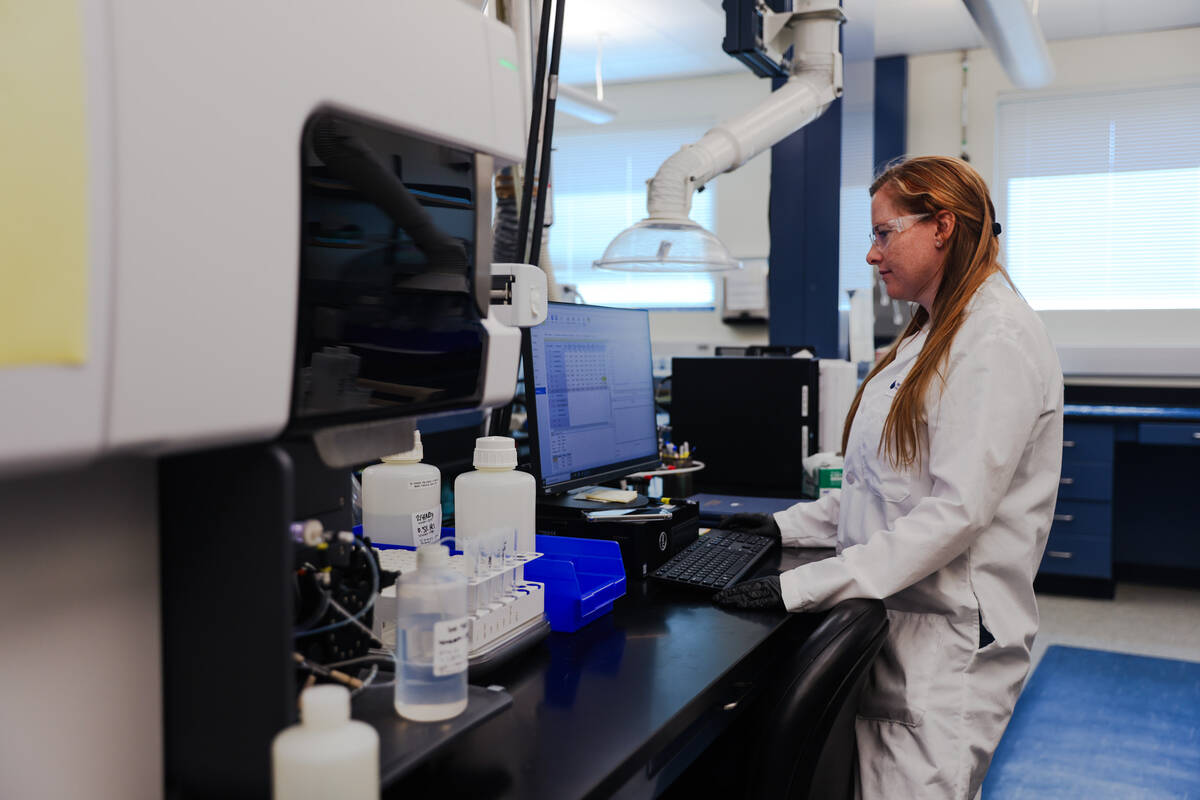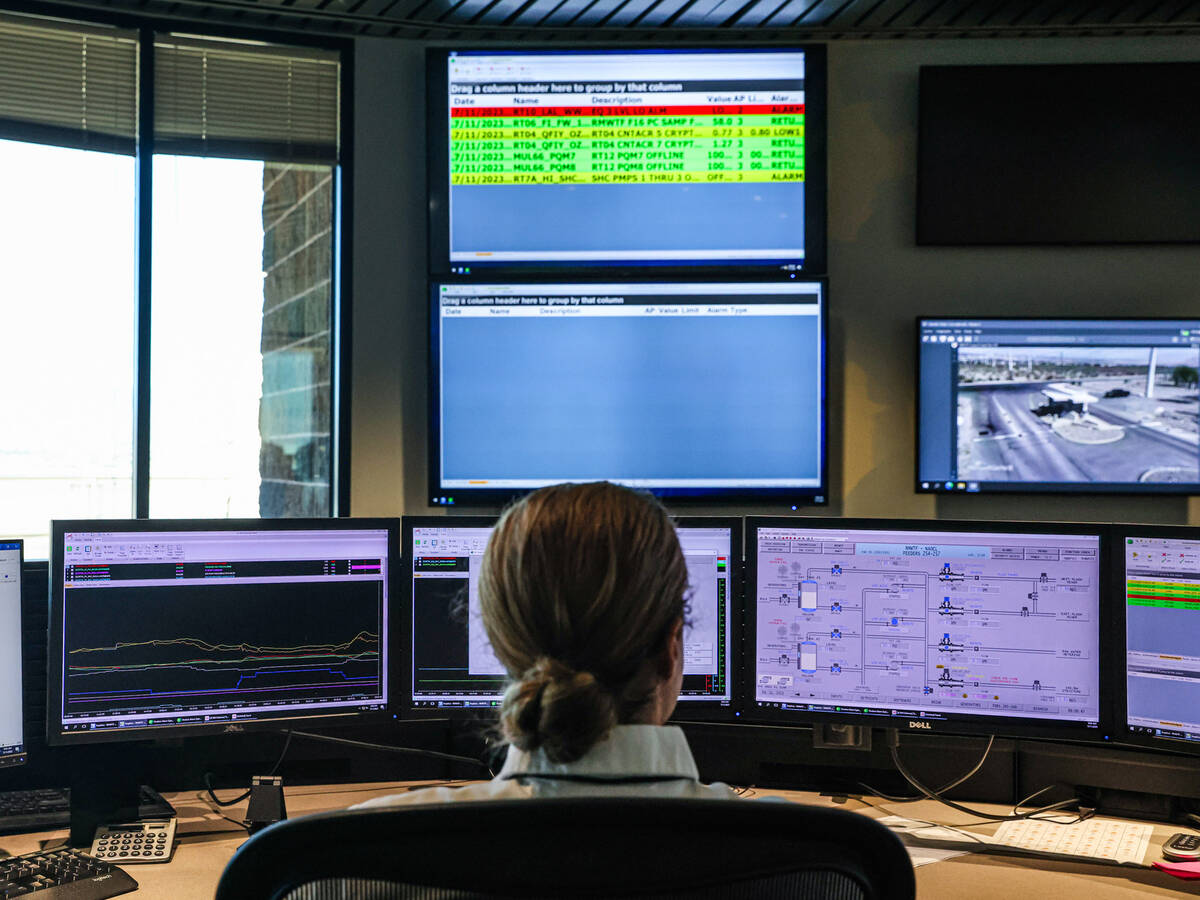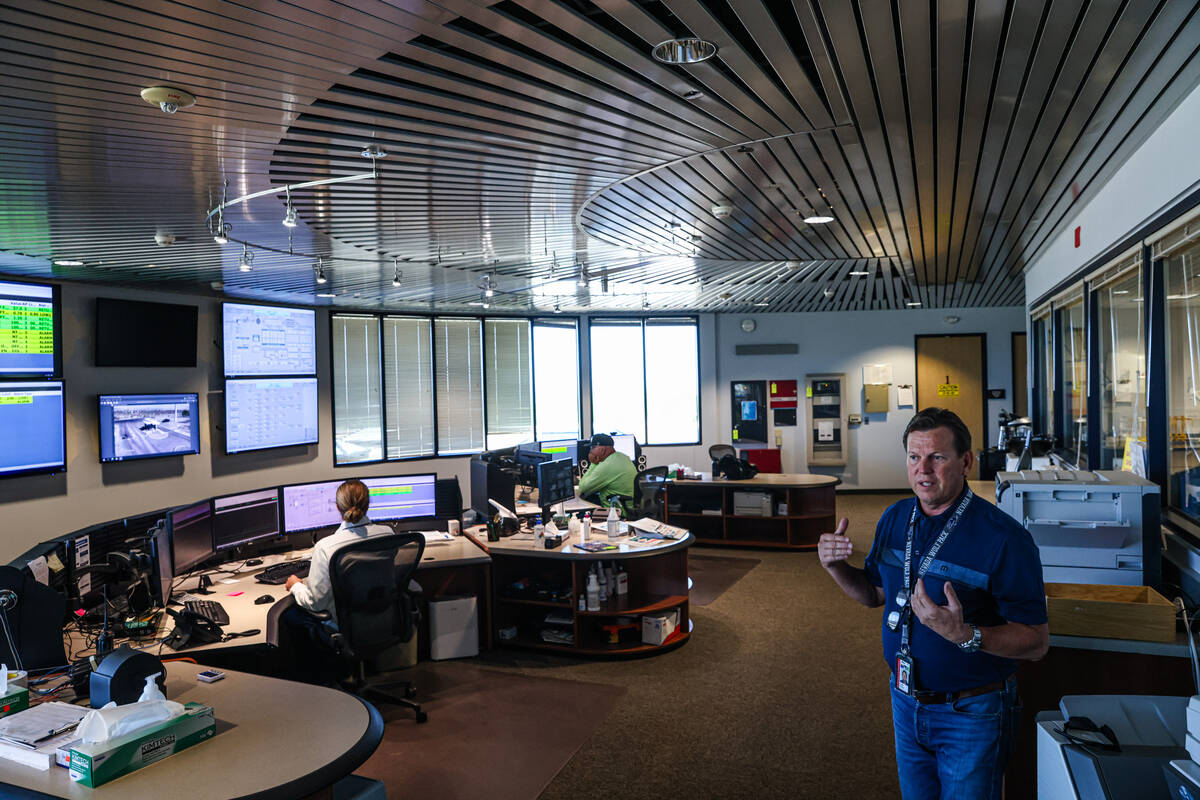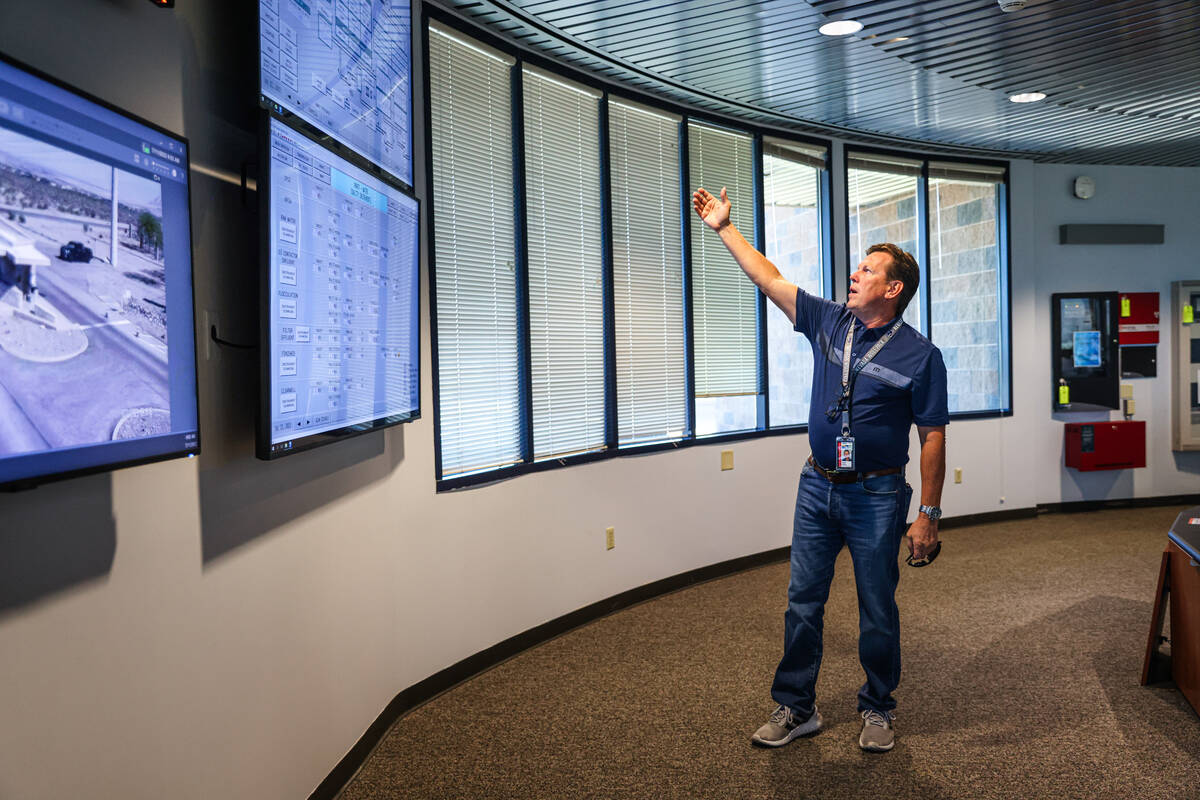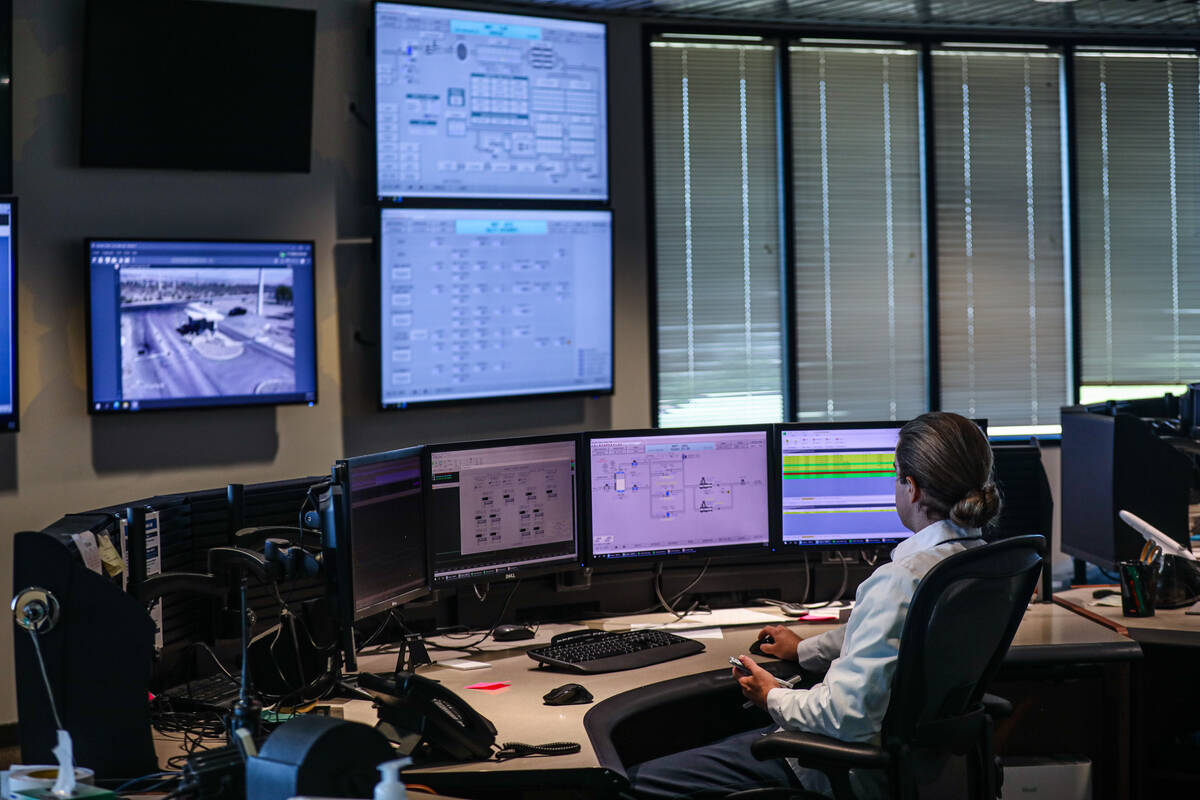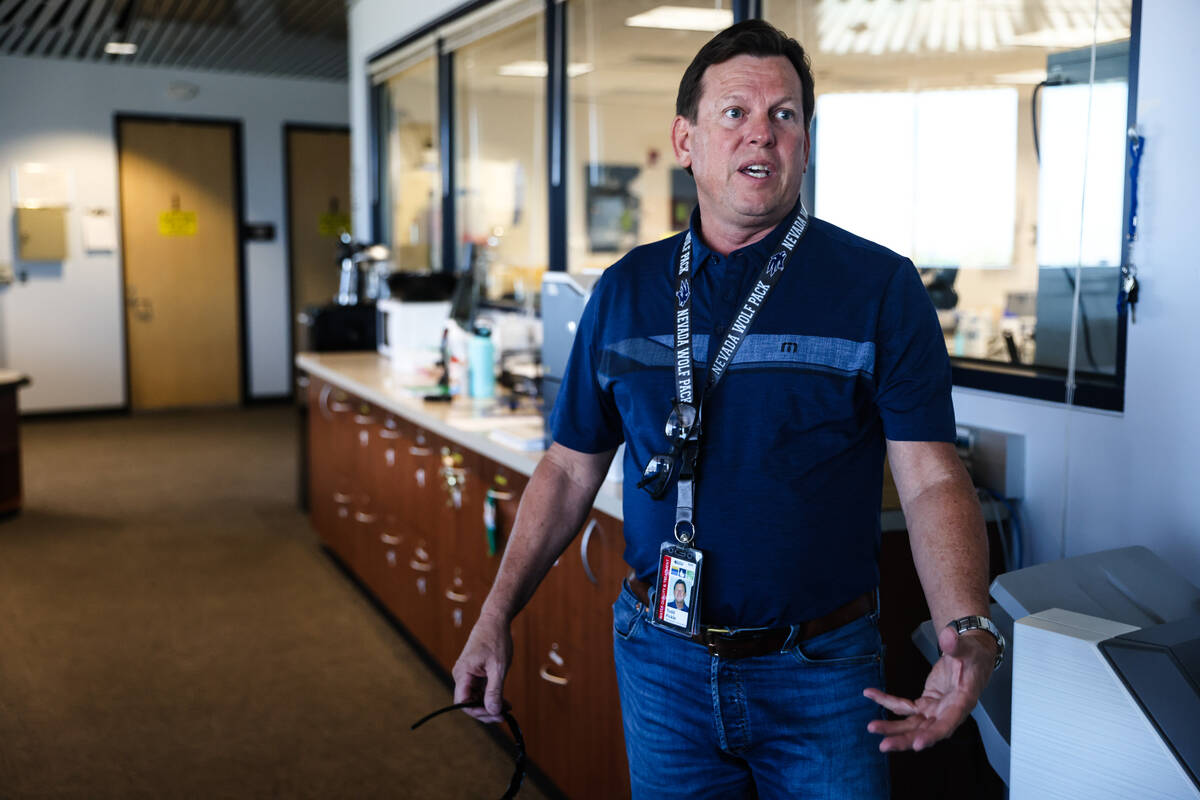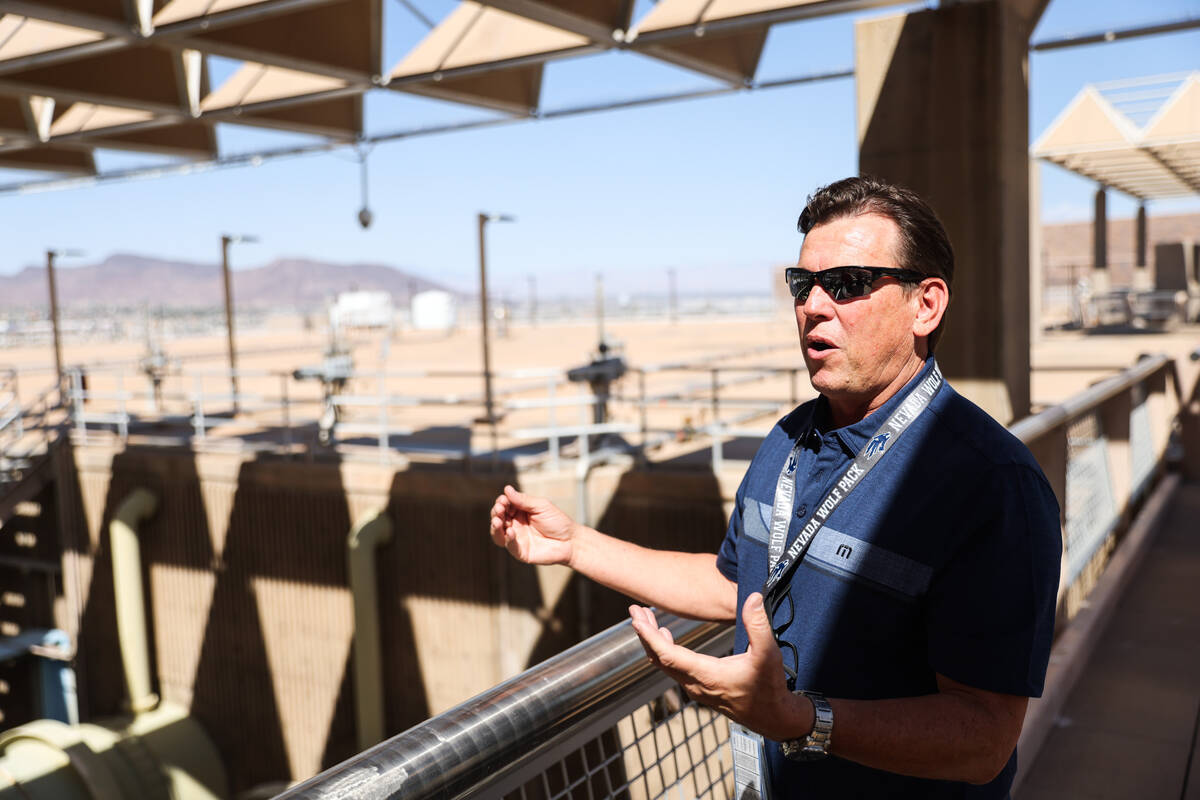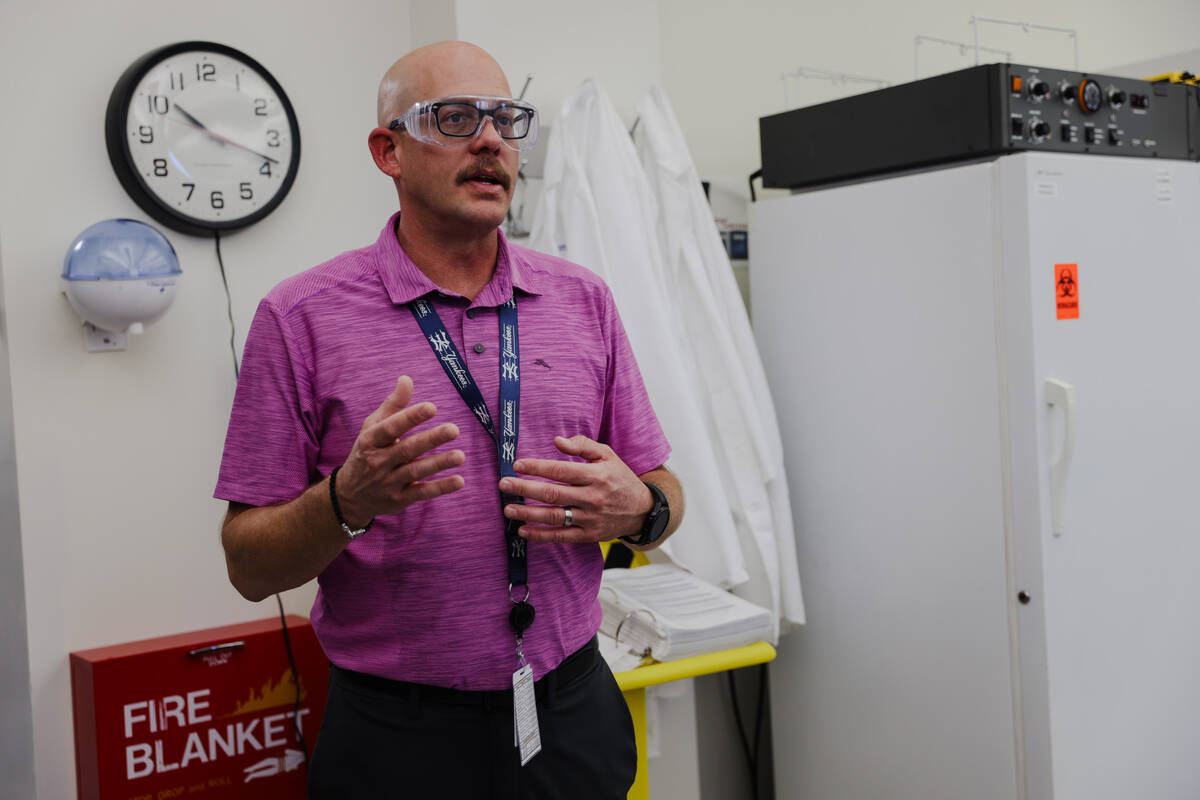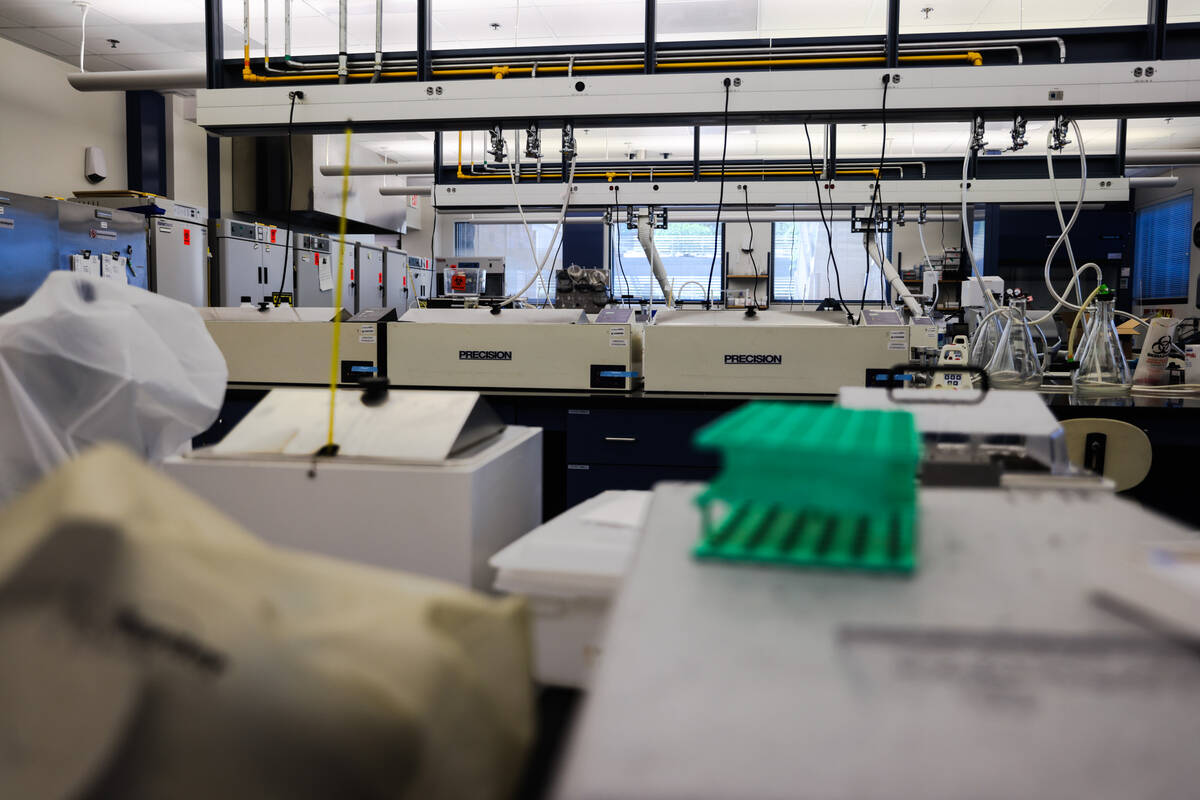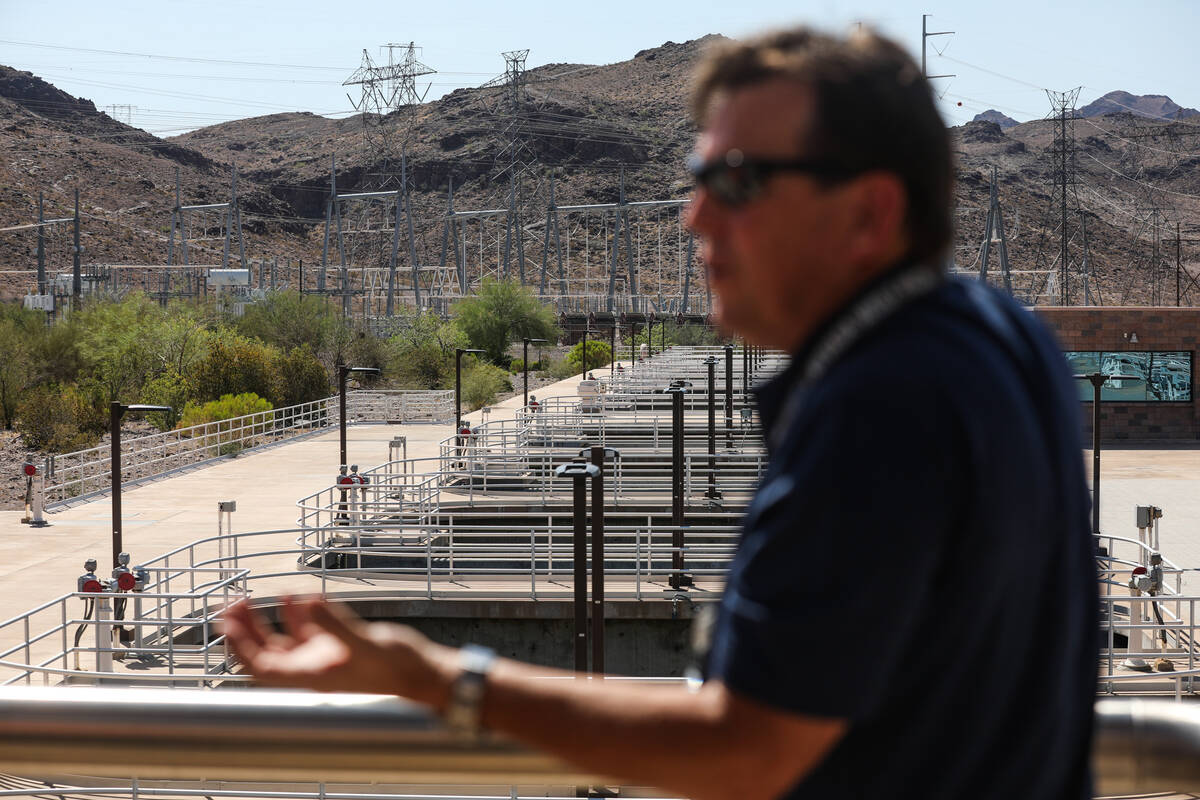Is Lake Mead water safe to drink?
Water taken directly from Lake Mead, the Colorado River or the underground water table isn’t safe for people to drink, but those are the sources of Southern Nevada’s drinking water.
Before it hits a glass, Las Vegas Valley’s water must run through two Southern Nevada Water Authority facilities.
The Alfred Merritt Smith Water Treatment Facility sits next to Lake Mead and provides drinking water to the Las Vegas Valley Water District and North Las Vegas. The River Mountain Water Treatment Facility on Burkholder Boulevard supplies water to the city of Henderson.
Henderson also operates its own water treatment facility, but Bryan Mortensen, Henderson’s water and wastewater operations manager, said it was taken offline last June because of Lake Mead’s low water level. The facility supplied enough water for 15 percent of the city’s population.
The first step in treating raw water is to disinfect it by pumping ozone into the water to kill or inactivate any possibly harmful biological material, according to Todd Pickle, the Southern Nevada Water Authority’s water quality and treatment division manager.
“Ozone doesn’t want to be ozone,” Pickle said. “It’s very, very reactive, and that’s what makes it a good oxidizer to inactivate the majority of the bacteria and viruses.”
After the ozone injection, ferric chloride is added to the water to make the leftover organic matter “coagulate” and get caught as water runs through a filter.
Alongside the coagulant, trace amounts of chlorine bleach are added to the water to leave a “disinfectant residual” that makes sure no possibly harmful contaminants make their way into the water before someone drinks it.
Finally, the water is fed through a filter made up of sand and fine coal, catching clumps of contaminants as it flows through.
After treatment, the water is delivered to multiple reservoirs throughout the valley, where it is pumped into the cities’ systems.
But the tests don’t stop after the water leaves treatment facilities. Both city and water authority staff keep sampling and testing drinking water in city systems to ensure it is safe for consumption.
Justin Hanks, laboratory services project manager for the water authority, said field specialists analyze samples from the 367 sampling stations in water systems across Clark County every day.
The cities themselves also frequently test water in their systems alongside the water authority.
“There’s hundreds and hundreds of tests that we do, thousands, a year, to ensure that the water that we are distributing to the customers is still safe and meets all of the standards,” Mortensen said.
Every water provider in Southern Nevada publishes a yearly water quality report for residents who want to know more about their drinking water.
“It’s not only just a demonstration of the water quality that we have today, it also gives a forward look,” said Dave Johnson, the water authority’s deputy general manager of operations. “And the good news for us is that we, with the data we have and the information we have, we have a very, very good story to tell.”
The Southern Nevada Water Authority website hosts links to every municipality’s water report pages on its website at https://www.snwa.com/water-quality/reports/index.html.
Contact Mark Credico at mcredico@reviewjournal.com. Follow him on Instagram @writermark2.



